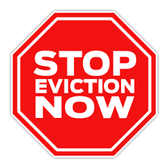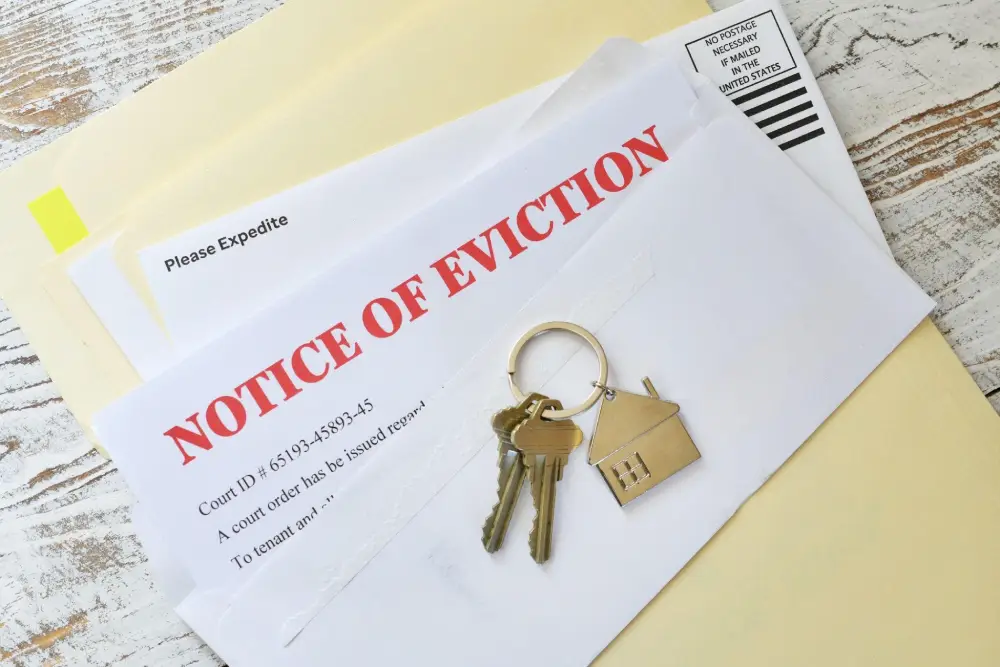Receiving an eviction notice can be a scary experience. It’s a legal document that tells you that your landlord wants you to move out of your rental unit. In California, landlords must follow strict rules about giving tenants these notices. Understanding the different types of eviction notices and what they mean is crucial for protecting your rights as a tenant.
At Stop Eviction Consultants, we’ve been helping California tenants navigate the complexities of eviction for over 27 years. We understand the stress and anxiety that eviction can cause, and we’re dedicated to providing personalized support and expert guidance to help you through this challenging process.
Understanding Eviction Notices in California
An eviction notice, also known as a “Notice to Quit,” is a formal written document that a landlord must give to a tenant before starting the eviction process. The notice must clearly state the reason for the eviction and the amount of time the tenant has to either resolve the issue or vacate the premises.
Types of Eviction Notices in California
There are several different types of eviction notices in California, each with its own specific requirements and implications:
3-Day Notice to Pay Rent or Quit: This is the most common type of eviction notice. It’s used when a tenant fails to pay rent on time. The notice gives the tenant three days to either pay the overdue rent in full or move out of the rental unit.
30-Day Notice to Terminate Tenancy: This notice is used to end a month-to-month tenancy for no specific reason (no-fault eviction). It gives the tenant 30 days to vacate the property. This notice is typically used when the tenant has lived in the unit for less than 12 months.
60-Day Notice to Terminate Tenancy: This notice is similar to the 30-day notice, but it’s required for tenancies that have lasted for 12 months or longer. It gives the tenant 60 days to vacate the property.
Notice to Cure or Quit: This notice is used when a tenant has violated a term in the lease agreement, such as having unauthorized pets or causing damage to the property. It gives the tenant a certain amount of time to fix the violation (cure) or move out (quit). The amount of time given depends on the nature of the violation.
Notice to Perform Covenants or Quit: This notice is similar to the Notice to Cure or Quit, but it is used for violations that are more ongoing in nature, such as consistently paying rent late or repeatedly causing disturbances.
eviction notice
Important Considerations for Eviction Notices in California
Proper Service: The eviction notice must be properly served on the tenant, either personally, by mail, or by posting it on the property.
Specifics: The notice must clearly state the specific reason for the eviction, the amount of rent owed (if applicable), and the deadline for compliance or vacating the premises.
Tenant Protection Act: The California Tenant Protection Act (AB 1482) provides additional protections for tenants, including “just cause” eviction requirements and limitations on rent increases.
What to Do If You Receive an Eviction Notice in California
If you receive an eviction notice, it’s crucial to take action to protect your rights. Here are some steps you can take:
Read the Notice Carefully: Understand the reason for the eviction and the deadline to comply or vacate.
Contact an Attorney: An attorney specializing in landlord-tenant law can help you understand your rights and options.
Respond to the Notice: You may need to file a response with the court to avoid a default judgment against you.
Gather Evidence: If you believe the eviction is wrongful, gather evidence to support your case, such as documentation of rent payments, communication with the landlord, or proof of repairs.
Negotiate with Your Landlord: Try to negotiate a resolution with your landlord, such as a payment plan or addressing any lease violations.
Seek Rental Assistance: Explore available rental assistance programs to help you catch up on rent or find affordable housing.
Stop Eviction Consultants: Your Partner in Fighting Eviction
At Stop Eviction Consultants, we have extensive experience helping tenants in California fight eviction. We understand the complexities of landlord-tenant law and can provide the guidance and support you need during this challenging time.
Our Services:
Case Evaluation: We’ll review your situation and advise you on your rights and options.
Negotiation with Landlords: We’ll negotiate with your landlord on your behalf to try to reach a favorable resolution.
Document Preparation: We’ll help you prepare the necessary legal documents, such as an answer to the complaint or a motion to quash the eviction.
Court Representation: If necessary, we’ll represent you in court and fight to protect your rights.
Don’t Face Eviction Alone
If you’re facing eviction in California, don’t wait to seek help. Contact Stop Eviction Consultants today for a free consultation. We’ll help you understand your rights, explore your options, and develop a strategy to fight your eviction and stay in your home.

